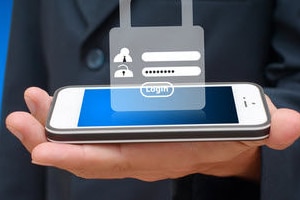Nearly everyone today has some form of mobile technology. Whether it be a cell phone, tablet or other device, these tools help make daily activities quicker and simpler than ever before. The amount of personal data contained inside of these mobile devices, however, is extremely sensitive, which makes it vital to maintain mobile security best practices when using them.
Knowing how to best protect your sensitive personal information can keep you from an unfortunate crisis, so staying educated is necessary. Whether you are looking to secure your personal devices or the strength of your business’s devices, investing in effective mobile security practices is a must. For those wanting to take the step toward more secure mobile networks, here are five accessible and effective practices to improve your mobile security.
Mobile Security Best Practices
1. Encryption
Technologies such as VPN can help you encrypt data stored on your device, as well as the data that is being transmitted through secured networks. VPN provides an excellent solution to sending valuable personal data in public places. You should never attempt to send personal data over public Wi-Fi networks without the proper encryption tools, as it puts you at high risk of your data being compromised.
2. User Authentication
Although most threats to mobile devices come from the Internet, the physical threat of theft is very real. Using effective user authentication practices can help secure your personal information in the case that someone tries to use your phone or steals your device. Occasionally you may also lose your device, mistakes happen after all, so it is important that you have strong and secure user authentication. Screen locks, passwords, PINS and security questions all provide excellent ways to keep unwanted intruders from stealing or gaining access to your personal information.
3. Back Up Frequently
Keeping your data accessible in the case of a data loss is just as important as keeping it out of the wrong hands. By frequently backing up your information in secure storage systems you will help keep yourself from losing valuable information in the case of theft or damage to your device. Try and gain access to software that automatically backs up your data on a set schedule, as this will allow you to keep secure without having to remember to back up after every important project.
4. Disable Wi-Fi and Bluetooth When They are Not in Use
This rule applies even more so when you are in a public place. Hackers most commonly gain access to your device while on the same Wi-Fi network/Bluetooth channel as you. Disabling these connection options will help protect you from vicious hackers on the prowl. When you are dealing with valuable personal information, you cannot afford to potentially expose it to unsafe environments such as faulty public Wi-Fi and Bluetooth networks.
5. Use Remote Location Tracking and Remote Wipe/Lock Options
In case of theft or loss of your device, using location tracking will give you the tools required to find your device. Remote wipe and lock options ensure your confidential information will not get into the wrong hands.

